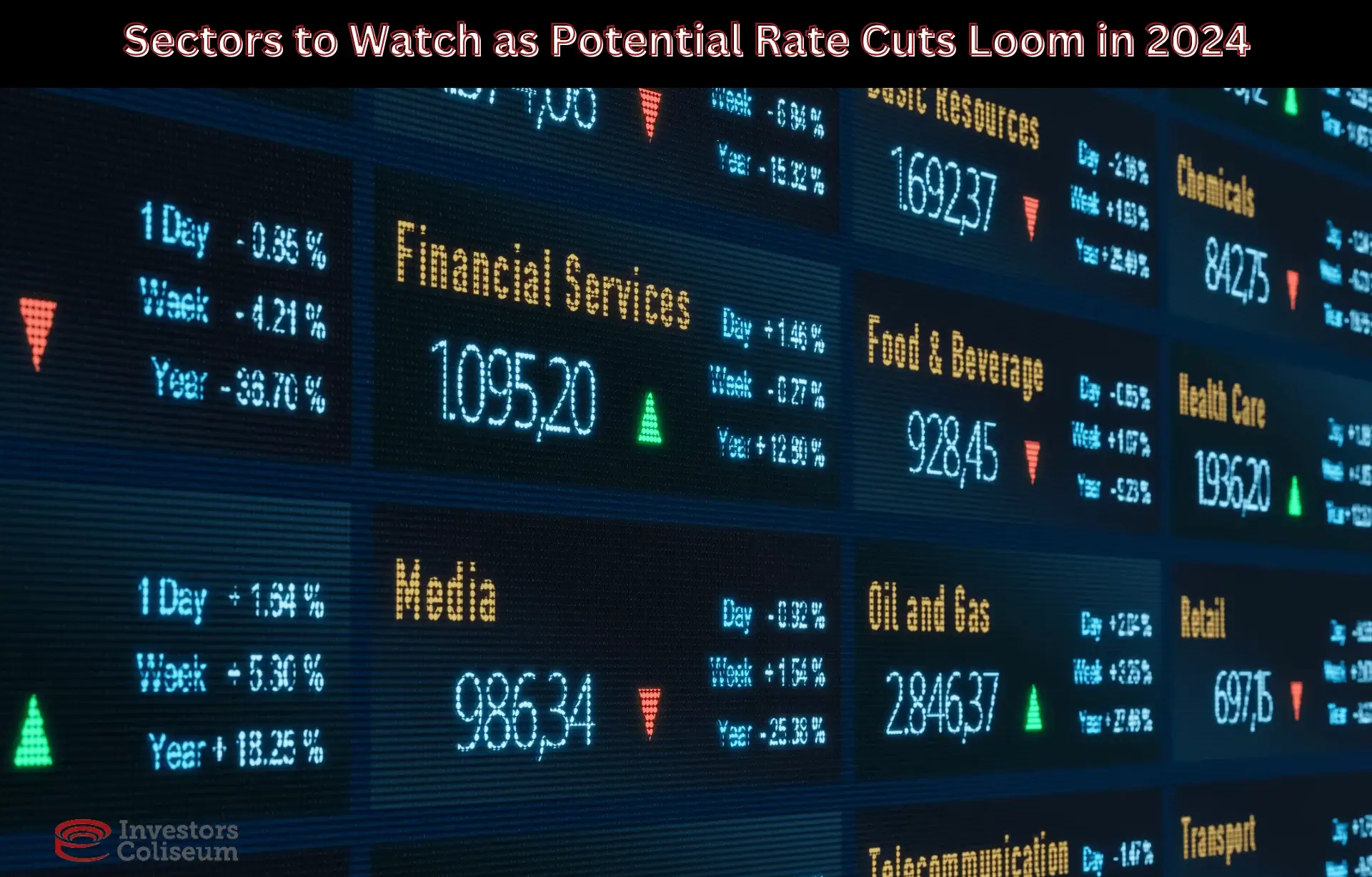
Introduction:
In the dynamic landscape of financial markets, the anticipation of central bank actions plays a crucial role in shaping investment strategies. One such factor that often commands the attention of investors is the possibility of rate cuts by central banks. As global economic conditions continue to evolve, several sectors are poised to respond significantly to potential rate cuts on the horizon.
1.Real Estate: One of the most sensitive sectors to interest rate changes is real estate. Lower interest rates can stimulate demand for mortgages, making homeownership more accessible. This, in turn, boosts demand for residential properties. Additionally, lower borrowing costs can incentivize real estate development and investment. Investors should keep a close eye on real estate investment trusts (REITs) and homebuilder stocks, as these are likely to benefit from an environment of reduced interest rates.
2.Financial Services: Financial institutions thrive on interest rate differentials. When rates decline, the cost of borrowing decreases, potentially widening net interest margins for banks. While this can benefit the financial sector, it’s essential to note that the impact may vary based on the economic environment. In times of economic uncertainty, banks may face challenges such as increased loan defaults. Investors should carefully evaluate the overall economic climate when considering financial stocks.
3.Technology: The technology sector often benefits from lower interest rates. As borrowing costs decrease, companies in this sector can take advantage of cheaper financing for innovation and expansion. Moreover, technology companies typically have lower debt levels compared to some other industries, making them less vulnerable to rising interest expenses. Investors may find opportunities in established technology giants as well as innovative start-ups, especially those focused on growth and expansion.
4.Consumer Discretionary: Lower interest rates can boost consumer spending by reducing the cost of borrowing for big-ticket items like homes and cars. This positive impact on consumer finances may translate into increased discretionary spending on goods and services. Retailers, automotive companies, and leisure and hospitality businesses are likely to experience a lift in demand. Investors should look for companies with strong consumer brands and a history of effective marketing in this sector.
5.Utilities: While utility stocks are generally considered defensive, they can also be influenced by interest rate movements. In a low-interest-rate environment, these companies may benefit from reduced costs of servicing debt, potentially leading to improved profitability. Moreover, utilities often offer stable dividends, making them attractive to income-seeking investors. However, it’s essential to consider regulatory environments and potential changes in energy policies that could impact the sector.
6.Healthcare: Healthcare is another sector that investors may find attractive during periods of potential rate cuts. The demand for healthcare services tends to be relatively stable, making healthcare stocks less sensitive to economic downturns. Additionally, the cost of financing for healthcare companies may decrease, positively impacting their bottom line. Investors should focus on companies with a robust product pipeline and strong fundamentals within the healthcare sector.
Conclusion:
As investors navigate the complex landscape of financial markets, keeping a watchful eye on potential rate cuts and their implications on various sectors is crucial. The sectors mentioned – real estate, financial services, technology, consumer discretionary, utilities, and healthcare – are likely to respond differently to changes in interest rates. However, it’s essential for investors to conduct thorough research, consider macroeconomic factors, and diversify their portfolios based on their risk tolerance and investment goals. By staying informed and proactive, investors can position themselves strategically to capitalize on opportunities arising from potential rate cuts in the future. Always use caution when investing in various sectors and do your due diligence throughout the process, of picking stocks and other investment vehicles.